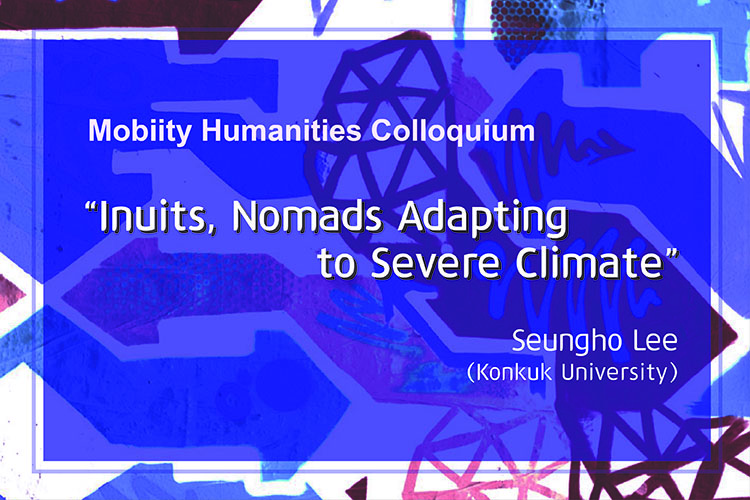
Professor Lee teaches in the Department of Geography at Konkuk University and serves as Director-General in the Climate Research Institute at Konkuk University. Aa a climatologist, his research interests widely cover the issue of climate change and its subsequent effect. He is the author of “Climatology”, “Climate of Korea & Culture Overview” and has translated “Our Ice Is Vanishing”, “Food Security, Food Prices and Climate Variability”, “Environmental Hazards”. He has also written journal articles, entitled “The Change of Inuit Traditional Culture” and “Climate-Influenced Landscapes in the Tundra”, to name a few.
In this colloquium, Professor Seung Ho Lee analyzed the Arctic region in terms of high-mobility society, looking at how it engages resources characteristic of the temporal and seasonal variation. He explained that: “The increasing movement of people to the Northwest Passage has caused rising temperatures and sea ice decrease, both of which have had a huge impact on the mobility/immobility of the Inuit people facing the movement of wildlife habitat.”
Professor Lee emphasized that “Considering it is the Arctic region where the most drastic climate change occurs, it is crucial for us to think more about the life of Inuit people who have experienced a crisis of mobility rather than to concern ourselves with the crisis of polar bears due to the climate change.”


